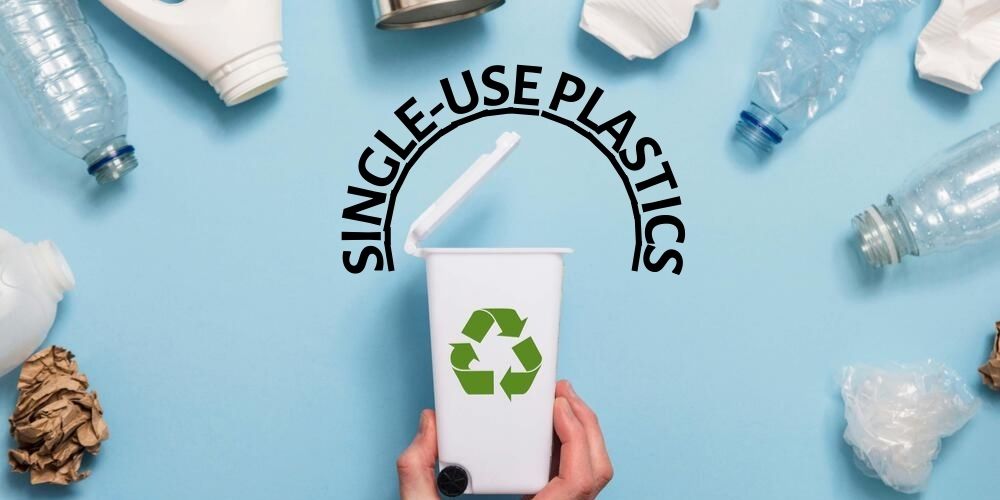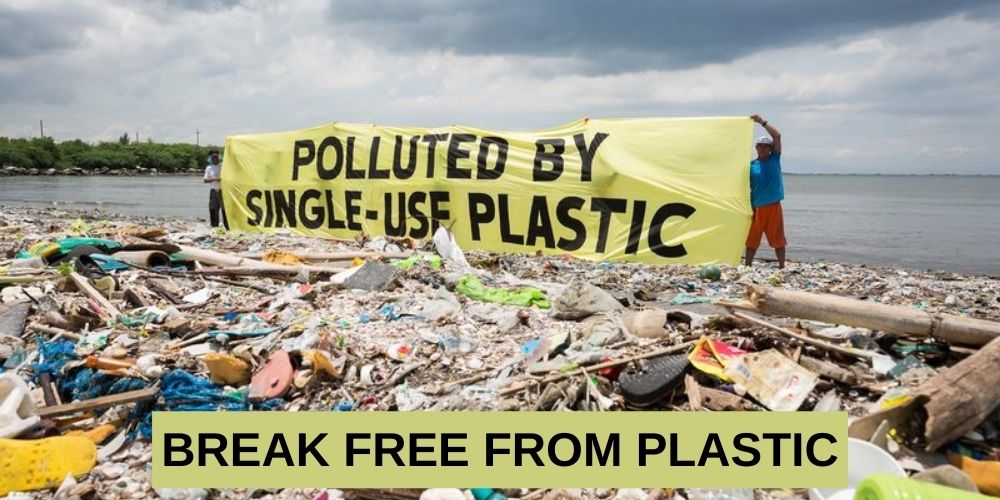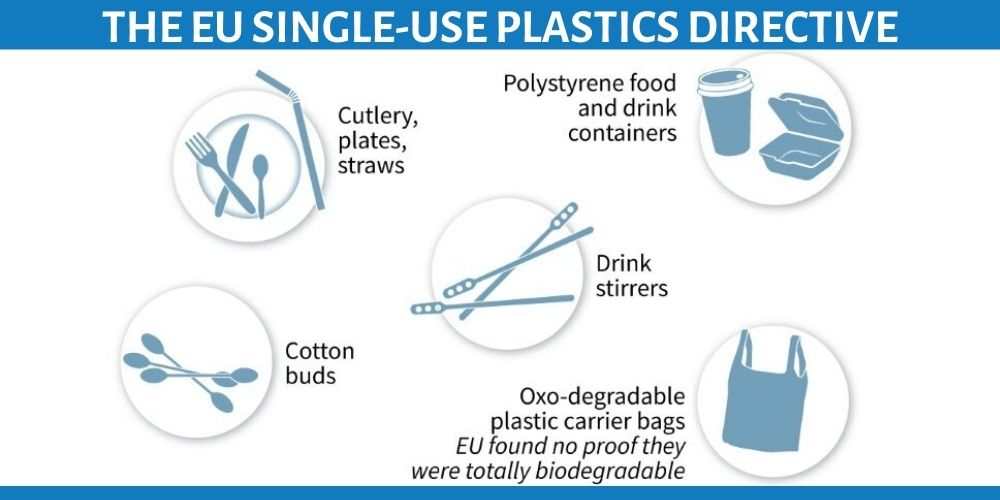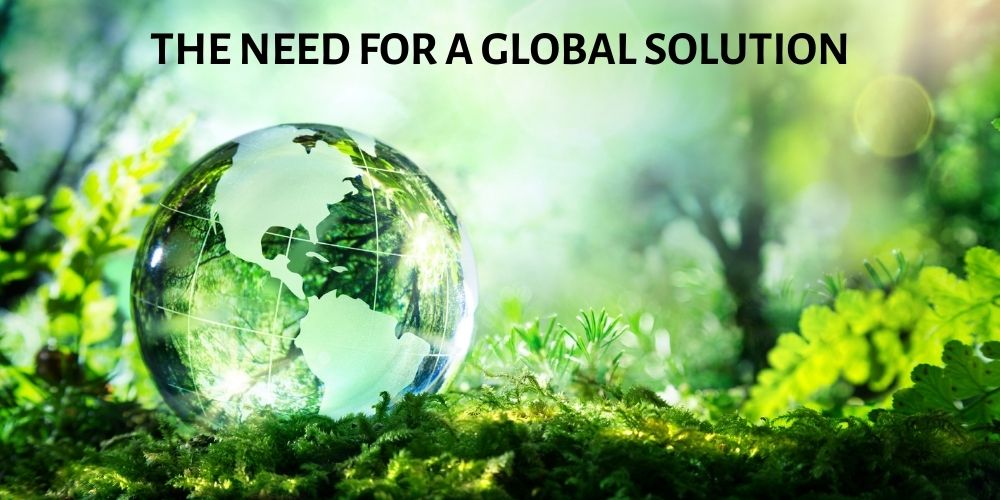
Initiatives to reduce the production and consumption of plastics
Posted on 02-22-2022 12:35:45
The way we currently produce and eat plastics isn’t sustainable. The massive manufacturing and intake of plastics, especially single-use plastic merchandise, have contributed substantially to the plastic pollutants crisis. Plastic pollution impacts our ecosystems, endangers animal lives, and additionally threatens human fitness.
There is just an excessive amount of plastic to be controlled, and recycling itself is not sufficient. A plastic pollutant is a multidimensional problem that calls for a holistic method. Tackling this problem and improving sustainable manufacturing and consumption of plastics calls for rethinking the manner monetary development is pursued.
Game-changing steps ought to be taken with the aid of all financial players - manufacturers, policy-makers, corporations, and clients worldwide.
The crisis: Current unsustainable production and consumption of plastics
Over the past 50 years, global production and consumption of plastics have elevated more than 20 instances over, and plastic manufacturing has reached 320 million tonnes a yr.
The effects of plastic litter, in particular of single-use and disposable gadgets (e.G., baggage, straws, coffee cups, beverage bottles, maximum food packaging) are developing as each year extra plastic waste accumulates in our surroundings and oceans.
Single-use plastics are a first-rate supply of pollutants, specifically marine muddle. Around 18 billion kilos of plastics enter the sea every 12 months. 2 Plastic is choking our oceans and marine lifestyles: in March 2019, we’ve been taken aback via the information that a whale become washed up dead in the Philippines with forty kilograms of plastic in its stomach.

Also, plastic is a continual fabric. Once inside the environment, it does no longer leave, it’s going to take centuries to degrade. To have an idea, one unmarried water bottle can remain on earth for around 450 years. What’s more, plastic regularly contains toxic chemical compounds, and publicity to plastics can impact human fitness in exclusive methods during the entire existence cycle, as an example by way of entering our meals chain as microparticles (microplastics) which could listen to poisonous chemical compounds, along with persistent organic pollutants. As plastic manufacturing increases, this publicity will only grow.
Alongside this large plastic, manufacturing got here improved pollutants. Of the expected 8. Three billion tonnes of plastic produced since the Fifties, best 9 percent have been recycled. In reality, the recycling systems in the region have now not stored tempo with the immoderate consumption of this fabric. Only a mere amount of the plastic in the marketplace is recycled; most plastic goods and substances in the long run come to be waste and are being dumped in landfills, littered, or burned.
The damage resulting from plastic vastly outweighs the benefits it brings to society, and the income realized through corporations will in no way atone for the harm caused by the pollutants it creates, which include extended greenhouse gas emissions, effects on biodiversity, and effects on tourism, fisheries, public protection, and human health.
The cause why we’ve got reached such a remarkable level of pollution is the manner we presently produce and devour plastics, that’s linear 5 and inefficient. Most plastic merchandise is utilized in quick-lived programs,
which aren’t designed for reuse or even for recycling.
Tackling this trouble and selling a sustainable use of plastics calls for a drastic discount on plastic production, specifically of single-use, low-value, disposable plastics.
The movement for a change has (just) begun
Due to the impact and extended recognition of the outcomes of plastics on the arena’s oceans, surroundings, and our fitness, many businesses have gathered electricity, unified by means of the same imaginative and prescient: a future that is loose from plastic pollution.
Break Free From Plastic (BFFP) is one of the most important global moves envisioning a destiny free from plastic pollution. 6 Since its release in September 2016, almost 1,500 groups the world over have joined to call for massive discounts in single-use plastics and to push for lasting answers to the plastic pollutants crisis.

These groups percentage the not unusual values of environmental protection and social justice, which manual their paintings on the network and worldwide levels. Among their activities are brand audits based on beach smooth-ups, to identify the manufacturers which can be the biggest responsible for plastic pollutants. 7 Last year, BFFP member organizations engaged almost 10,000 volunteers in 239 easy-united states in 42 countries on six continents, amassing and analyzing over 187,851 portions of plastic pollution. The motion discovered the top 10 polluters international:
- Coca-Cola
- PepsiCo
- Nestlé
- Danone
- Mondelez International
- Procter & Gamble
- Unilever
- Perfetti van Melle
- Mars Incorporated
- Colgate-Palmolive
The EU single-use plastics directive

The Directive includes a set of measures to tackle marine litter, 11 including:
1)-A ban on decided on unmarried-use plastic merchandise for which marketplace options exist: cotton bud sticks, cutlery, plates, straws, stirrers, balloon sticks, in addition to cups, food, and beverage bins fabricated from extended polystyrene, and all merchandise fabricated from oxo-degradable plastic.
2)-Measures to reduce intake of plastic food bins and beverage cups and particular marking and labeling of certain products
3)-Extended Producer Responsibility schemes masking the easy-up fee of clutter, carried out to products consisting of tobacco filters and fishing gear
4)-A 90 percent separate collection target for plastic bottles with the aid of 2029 (77% by way of 2025) and the creation of design requirements to attach caps to bottles, in addition to a target to contain 25 percent of recycled plastic in polyethylene terephthalate (PET) bottles through 2025 and 30 percent in all plastic. bottles by using 2030.
Several other international locations have already adopted rules or are considering proposals to goal disposable plastic products. In early 2018, BFFP published a record listing existing countrywide prohibitions, regulations, and levies on single-use plastics international, which includes Belarus, Montenegro, the United Kingdom, India, and many countries in Asia and Latin America.
But it’s far just the beginning. Because of the without borders nature of plastic pollution, a worldwide answer is needed.
The need for a global solution

There is no doubt that plastic pollution is a developing worldwide problem. Plastics are transported by using ocean currents and end up past national obstacles. Many floating hundreds of plastics were determined in the ocean - the so-known as ‘rubbish patches’ in oceanic gyres. Thirteen Actually, nearly every nook of the arena has been impacted by way of this material, contaminating our environment and harming residing beings.
The international community needs to come collectively and agree on an ambitious framework to clear up the crisis: we need a legally binding global agreement to tackle plastic pollution with a full lifestyles-cycle technique and promote the prevention of plastic waste.
In reality, tackling plastic pollution has emerged as a critical part of the 2030 Agenda and its Sustainable Development Goals (SDGs). Implementing SDG 12 on sustainable intake and manufacturing styles is especially essential in curbing plastic waste technology.
Anchored by the SDGs, the United Nations Environment Assembly (UNEA) has recognized the plastic disaster as a critical and swiftly growing trouble of worldwide subject, which calls for an urgent global response.
At the near of the fourth consultation of the UNEA in March 2019, governments adopted a Ministerial Declaration titled ‘Innovative Solutions for Environmental Challenges and Sustainable Consumption and Production’, that commits to seriously reduce the manufacturing and use of single-use plastic merchandise by using 2030.
Many civil society companies and felony professionals have diagnosed large gaps in the present frameworks addressing plastics and plastic pollution. The United Nations Environment Programme (UN Environment) agreed that “modern governance techniques and processes offer a fragmented technique that does not correctly address marine plastic muddle and microplastics.”
The BFFP participants name for a new global Convention on Plastic Pollution with a mandate to manage the lifecycle of plastics, including manufacturing. “The new Convention need to anchor, build upon, and complement present regional and global voluntary and binding frameworks, letting them contribute within their middle talents.”
All sectors of the economic system ought to be addressed with new global agreements, specifically regarding corporations, as the way they perform has a big impact on how resources are deployed. Producers are at the foundation of the hassle through extracting fossil fuels (together with fracking, one of the most environmentally damaging approaches), to ceaselessly produce plastic and inundate the planet with unmarried-use goods.
In reality, plastic pollution does not start while it enters the surroundings, however from its first actual production level. This is why tackling plastic requires a lifecycle technique, contemplating the whole price chain.
The way is upstream: prevention and reduction
Plastic is one of the fastest-growing pollutants inside the international. The way we presently layout, produce and consume plastics is both unsustainable and inefficient. Tackling this problem and enhancing the sustainable manufacturing and consumption of plastics calls for rethinking the way financial development is pursued. Game-converting steps have to be taken with the aid of all monetary players - producers, policy-makers, agencies, and purchasers international.
Notably, pressing measures are wanted in 3 key areas: discount of plastic manufacturing and consumption, redesign of plastic merchandise to be secure and sustainable, and better control of plastic waste.
Production and consumption styles need to be ethical, and no longer totally pushed through economics. Most merchandise are created simply in pursuit of income, with little regard for his or her environmental and health affects. We need to shift away from economic models that value boom for growth’s sake, toward a new mindset that respects planetary obstacles.
Changing the current way plastics are produced and consumed requires a nice balance among policies and incentives and government regulations have an vital function to play in using the essential paradigm shift from downstream solutions, such as recycling, to extra upstream answers, such as reduction, prevention and alternative commercial enterprise fashions.
Recycling on my own is not enough, neither are the heroic efforts of the ‘beach easy-up volunteers. There is just an excessive amount of plastic to be controlled. Coca-Cola has currently declared that they produce around 2 hundred,000 plastic bottles per minute. We want to shut the tap and get to the source of the trouble via stopping the generation of plastic waste in the first place and building virtuous cycles within resilient economic structures. Successfully This can be finished through upstream measures inclusive of redesigning plastics for circularity (e.G., excellent lengthy-lifestyles merchandise free of toxic chemical substances), and enforcing extended manufacturer obligation schemes (EPR) to make sure manufacturers endure the full charges of waste management and the smooth-up of their merchandise.
Plastics that can’t be recycled should now not be produced within the first vicinity, and unmarried-use plastic applications for which sustainable options are broad to be had must be restrained from the marketplace.
Also, reusable neighborhood schemes must be promoted and scaled up in which possible. Countries all around the globe must observe the instance of the new European Single-Use Plastic Directive, to put into effect the proper monetary incentives in addition to bans on wasteful single-use products: such measures can genuinely open the door to innovative alternatives.
Zero Waste solutions exist already, and new commercial enterprise models are already proving successful consequences. Moving away from a disposable and packaging-extensive marketplace to greater local and resilient economies based on services and brief delivery chains is inside reach. In reality, the transition to a submit-unmarried-use plastic generation can convey new jobs and thriving economies. However, for this to take place, we need a solid and supportive legislative framework to put the right financial incentives in the area.
Larissa Copello de Souza is a Consumption and Production Campaigner at Zero Waste Europe, a fast-developing motion of groups, local leaders, organizations, experts, influencers, and other change retailers running closer to putting off the waste of their societies.